CBD oil has become a global phenomenon and is being touted by the British media as a miracle medicine to cure all ails According to The Cannabis Trades Association UK, the number of British people using CBD oil doubled in 2017 to a whopping quarter of a million. But what is CBD oil? Is it really that effective and is it legal? As Scotland’s largest independent retailer, the team at Real Foods answers all of these frequently asked questions.
The internet has opened up a myriad of possibilities for alternative medicines and therapies. Previously, the pharmaceutical industry drove medical research but today it is the ability to quickly share success stories across the globe that drives academia to authenticate their value. One such success story is CBD oil, which has been hailed as a solution for many an ailment.

With medical marijuana programs from Israel to Canada and more liberalised or decriminalised possession laws elsewhere, it is perhaps the United States where CBD oil has gained most attention as the latest wellness philosophy. CBD oil is now a featured favourite in vape pens and is being added to cocktails and chic juice shops in Los Angeles. This hype can often add to a cynic’s doubt, yet once you peel back the layers and read the preliminary research, this time there’s definitely something in its popularity.
The cannabis revolution may appear new but cannabis has been around for thousands of years, included in ancient Chinese medicine and also found in Siberian burial mounds dating back to 3,000 BC. Even the 18th century US president George Washington grew hemp at his plantation in Mount Vernon!
What is CBD oil?
CBD oil is the short-hand term for cannabidiol oil, a cannabis-derived chemical. There are over 113 chemicals called cannabinoids found in the sativa cannabis plant.
Unlike marijuana, CBD doesn’t contain the psychoactive, mood-altering tetrahydrocannabinol – better known as THC – so it will not get you intoxicated or ‘high’.
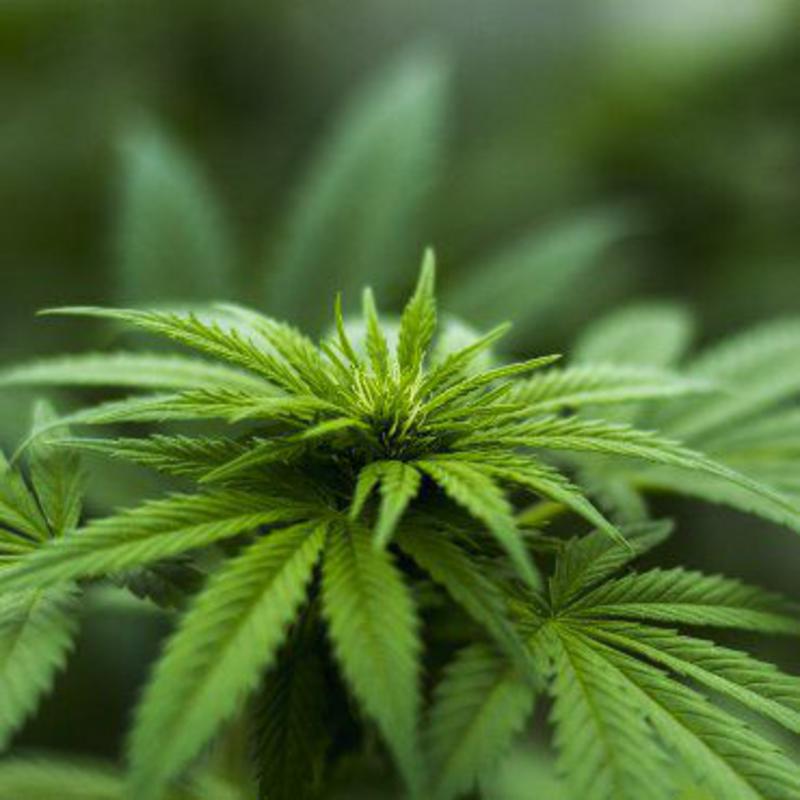
Sativa Cannabis
How is CBD oil made?
CBD oil is produced by extracting oil from the flowers and buds of mainly hemp and some marijuana plants.
Did you know? The largest global producer and exporter of legal cannabis is the UK, according to the UN’s International Narcotics Control Board.
There are two types of CBD oil. CBD isolate is produced with over 99% CBD, however, researchers suggest that a CBD full spectrum – when used with other cannabinoids from the plant – may be more beneficial with CBD’s effect being further heightened.
What is CBD oil used for?
CBD oil is being used by its advocates for a wide range of chronic ailments, as well as some more pervasive, acute conditions.
Researchers have studied CBD oil’s effect and while most of this research is still in its early stages, CBD oil shows signs that it is anti-inflammatory, analgesic, anti-psychotic, anti-convulsant, antiemetic, and an antioxidant.
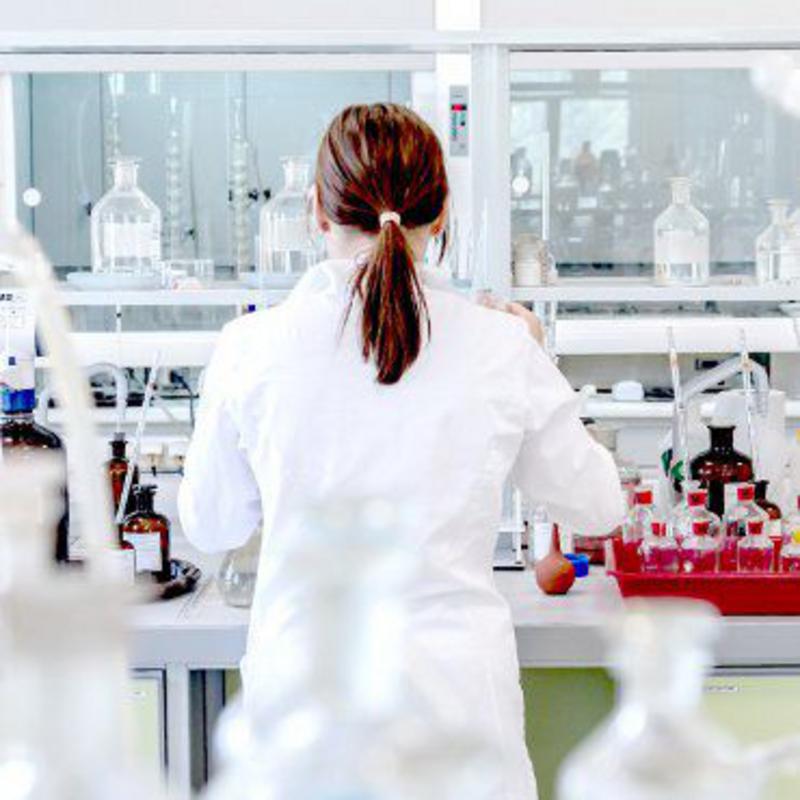
Cannabidiol is also thought to have neuroprotective properties, regulate blood pressure, act as a bronchodilator, and aid against neurodegenerative related diseases.
A report by the World Health Organization (WHO) highlighted that CBD oil has a soothing effect and is suitable for anxiety and depression, while the New England Journal of Medicine reported that a pharmaceutical form of CBD is able to reduce paediatric seizures by over 40%.
This is why this one oil can offer so much relief against a multitude of ailments, including but not limited to:
-
Acne management
-
Alzheimer’s disease
-
Anxiety & Depression
-
Appetite loss
-
Asthma
-
Cardiovascular disease
-
Crohn’s disease
-
Diabetes
-
Epilepsy across a wide spectrum
-
Fibromyalgia syndrome
-
Glaucoma
-
Heart Disease
-
Lou Gehrig’s disease
-
Multiple Sclerosis (MS)
-
Nausea
-
Osteoporosis
-
Parkinson’s disease
-
PTSD
-
Rheumatoid arthritis
-
Schizophrenia
-
Sleep aid
-
Spinal cord injuries
-
Tourette’s Syndrome
CBD Oil for Cancer?
CBD oil is also believed to be cytotoxic to cancer cells, as one study in Madrid showed that rats injected with cancerous tumours were cured or had their tumours reduced by cannabidiol. Unfortunately, as Manuel Guzmán, the biochemist behind this research notes, there are still many obstacles to human trials, one of which is that natural compounds cannot be patented and therefore removes commercial interest. Despite this, there are researchers who are dedicating time and resources to ensure that there is a growing number of studies.
Did you know? A THC-CBD oral spray Sativex is produced by London-based GW Pharmaceuticals and trials are being led by a team of neuro-oncologists at St. James’s University Hospital in West Yorkshire, to look into its impact on aggressive brain tumours and how it can aid autism spectrum disorder.
Why is CBD oil good for you?
There’s one simple reason why CBD oil appears to have so many health benefits. There’s a system in our body responsible for ensuring a balance of our most critical functions – from our immune system to pain, sleep, stress and even appetite.
When our body is off-balance, this system, called the Endocannabinoid System (ECS), goes straight to work.
Our endocannabinoids connect receptors that spread from our brain to other parts of the body and influence everything from our mood to our memory function.
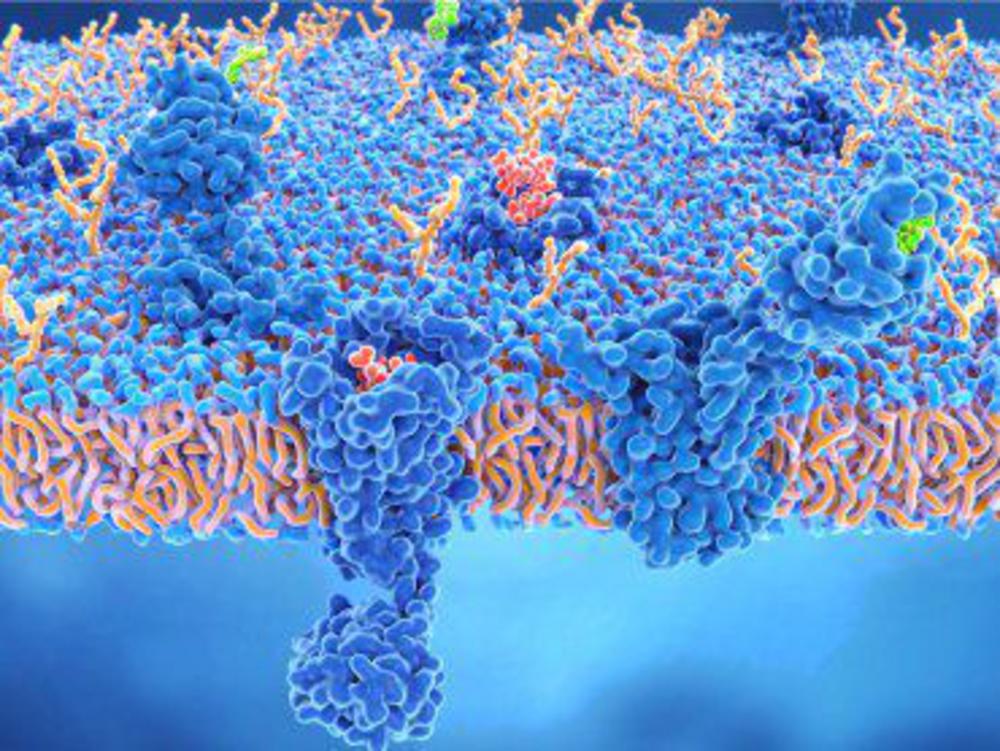
Two brain cell receptors: delta opioid receptor and cannabinoid receptor
Endocannabinoids are not only produced by our body but also the cannabis plant. CBD activates many of these receptors – or neurotransmitters – including but not limited to:
-
Adenosine, responsible for anti-inflammation and anti-anxiety
-
Serotonin, responsible for anti-depression, anti-pain, and the ability to influence our sleep, appetite and feelings of nausea
-
Dopamine, the motivation receptor
-
Glutamate, which aids learning, cognition, memory and excitatory signals.
The quantity of CBD oil you take has an impact on these receptors, however, to date there have never been any recorded incidents of fatal CBD overdoses.
Did you know? The difference between hemp and cannabis/marijuana is that the latter is grown for its potent, resinous glands known as trichomes, which contain the highs of THC, whereas hemp contains only trace amounts (less than 0.3% of THC). That’s why it is often industrial, legally grown hemp that produces CBD oil.
Why is CBD oil expensive?
CBD oil can be expensive, but that is because it is a natural product that has to go through a series of processes to extract its oil. Firstly, it costs a lot to plant, cultivate and successfully harvest the cannabis plant, with the usual agricultural operational costs including land, equipment, and labour. When extracted from the plant, the result is a raw CBD gel, that then has to go through further processing and quality testing in the laboratory to ensure it is safe in its finished product.
Real Foods, Scotland’s largest independent retailer of health and wholefoods, offers a range of CBD oil products, including Jambo Superfoods 5mg CBD Lip Balm With Eucalyptus & Mint for £9.99, a 10ml Love CBD 3% CBD oil tincture for £18.99 to 60 CBD Celtic Wind Crop capsules for £89.99.
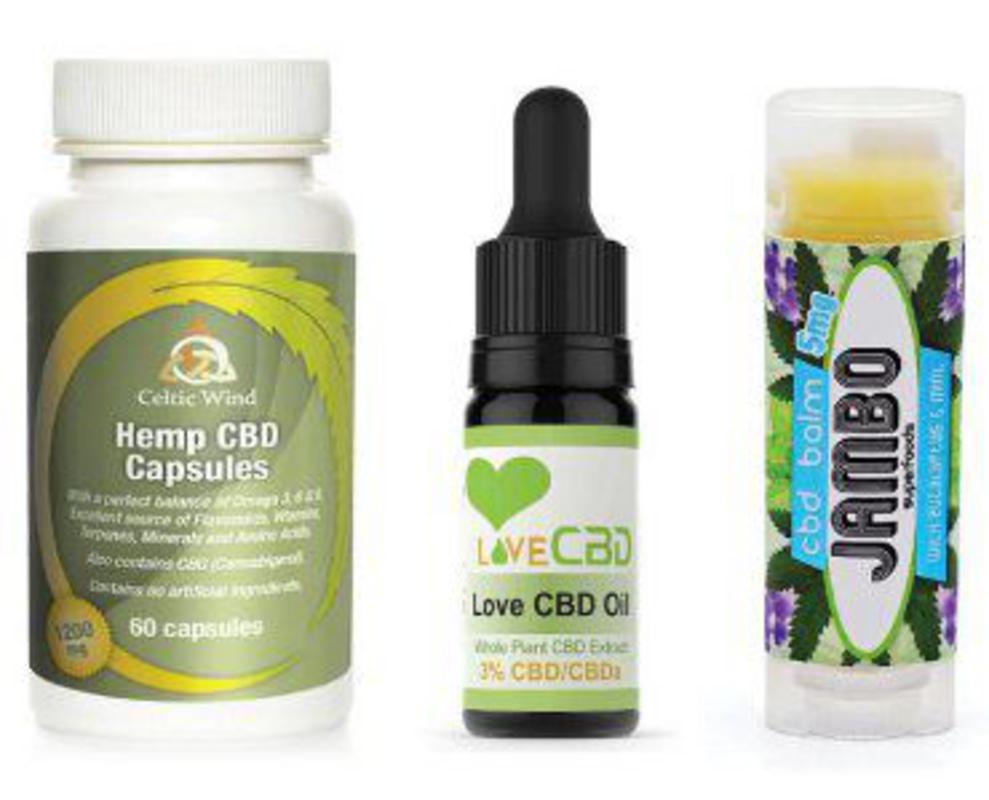
If you find cheap CBD oil available for sale then be warned: there are many imitation products out there manufactured in Asia and being sold online that contain little to no CBD.
Certain products contain chemical nasties, such as vape pen CBD oils that contain propylene glycol, which when overheated creates the carcinogen formaldehyde, according to a 2015 New England Journal of Medicine report.
Check the label and avoid CBD products that include artificial additives, preservatives, corn syrup, GMOs and trans-fats.
If CBD oil isn’t harvested and processed correctly, it may be contaminated because hemp is a bioaccumulator, which means that it draws toxins from the soil.
While a synthetic CBD oil has been produced, a 2016 placebo study by The Cochrane Database of Systematic Reviews (CDSR) proved that there were no benefits when testing it on fibromyalgia sufferers.
To ensure your CBD oil is the real deal and doesn’t contain THC, purchase products from a verified and trusted source, that have clear labelling and show the quantity and ratio of CBD per dose.
The recent legalisation of CBD oil in the UK has also ensured that products are regulated, and good products should also include a manufacturing date and a batch number, which highlights laboratory-tested quality control.
Is CBD oil legal in the UK?
CBD oil is 100% legal in the UK as it has been demonstrated in numerous studies to have proven medical value. CBD products in the UK are derived from one of just 63 EU-approved industrial hemp. Some doctors are even able to provide a special prescription, but this is still limited as it is not recognised by all regions of the NHS. Note that cannabis oil is still prohibited.
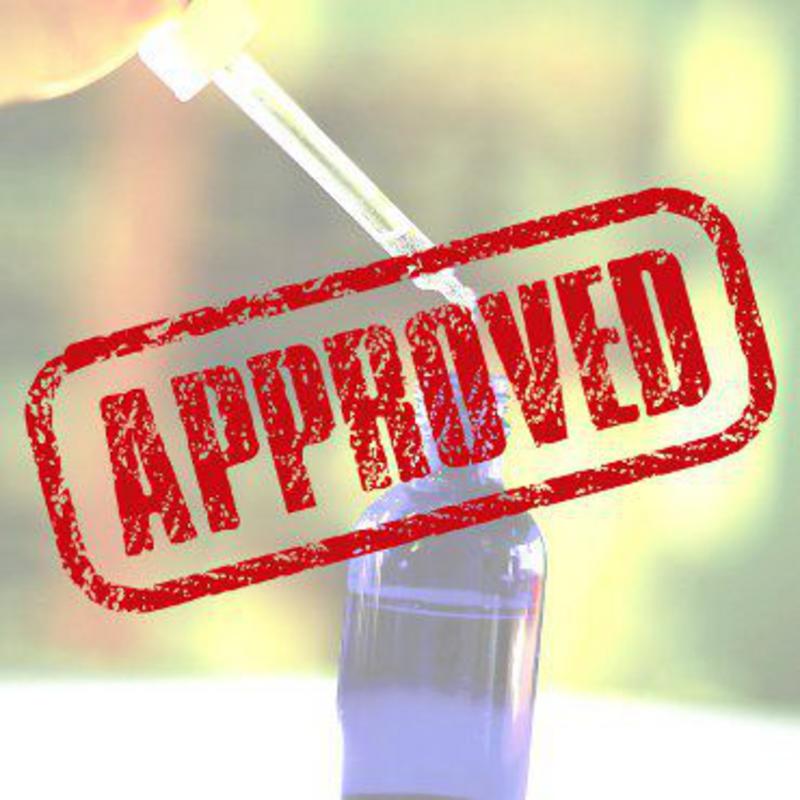
How is CBD oil taken?
There are four main CBD oil products available: in tinctures that can be given as drops or sprays in the mouth; in skin balms to be applied topically; in capsule or gummies form to be swallowed; and vaping liquids, which can be inhaled.
CBD oil is very much considered a personalised medical therapy, as it will affect individuals differently, and results are dependent on the dose and quantity of CBD oil, as well as your body weight, usage and method of taking it.
Every CBD oil has a different concentration. At Real Foods, you can get a wide range of verified and trustworthy CBD oils delivered right to your door.

CBD oil might take a bit of getting used to with its earthy and potent taste, so a glass of water on hand is a good idea.
Oral consumption rather than vaping or topical application is generally considered more effective and will last longer. CBD capsules take longer – about an hour – to kick in, and are another viable option.
When you first take CBD oil, start with a really low dose – perhaps just 2-3 mgs. Over time you can increase your quantity until your symptoms are gone. It is advised to adjust the ratio and dose overtime for good reason, as cannabidiols have what are known as biphasic properties, which mean that dosage can actually produce opposing effects!
If you use tinctures then you can drop it under your tongue a few times a day, which often will give you relief from your symptoms in just a few minutes if you have an empty stomach.
On average, CBD oil stays in your system for three to five days, but usually the benefits last just three to four hours, which is when your symptoms will start to return. When this happens, it is time for another dose.
Many CBD oil products use a carrier oil that helps stabilise the CBD and increase its effectiveness, although CBD extract doesn’t necessarily need a carrier oil as it is a fat soluble.
You can have CBD oils that use coconut oil, olive oil and hemp seed oil. Some researchers believe that CBD in coconut oil, which contains medium-chain triglycerides (MCT) and is directly metabolised by the liver are more potent, but really, the jury’s out.
When choosing your dosage, your purpose for CBD oil should also be considered. Just 1-20 mgs can make you feel relaxed, whereas those who suffer from seizures can take as much as 200-300mg of CBD orally every day.
With more health professionals open to the benefits of CBD oil, it is likely that your GP will be able to advise you about your personal dosage.

There are also interactions with some pharmaceutical medicines, such as insulin and painkillers, so we advise that you always consult your doctor prior to taking CBD oil if you are on other medication.
Real Foods sources all of its products with great care. Why not choose from our range of high-quality CBD oils in our online store, or pop into one of our wholefood shops in Edinburgh?